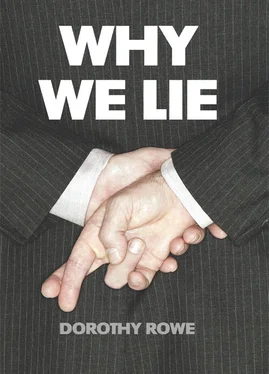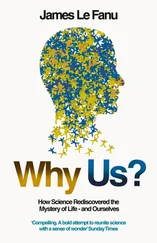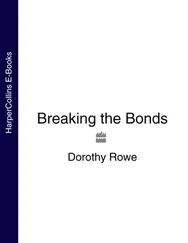Small children know that they see things differently from their parents. Some children manage to hang on to this knowledge and to value their own point of view, despite the authoritarian adults they encounter. Some lucky children have parents who take the child’s point of view seriously. When we take another person’s view seriously we are not necessarily agreeing with that person. A parent can say, ‘I appreciate that you have good reasons for staying up late, but I have good reasons to want you to go to bed now. In this particular situation my reasons are going to prevail. Go to bed now.’
When we take other people’s point of view seriously, we are implicitly acknowledging that our different points of view arise from the way we are as human beings. Many religious leaders talk about how important it is that we all accept people of other faiths, and there are many ecumenical gatherings of priests, rabbis, vicars, ministers and imams. In these meetings, are all these clerics saying that their different beliefs are of equal value? Or are they merely being polite to one another while secretly thinking, ‘I’m the only one that is in possession of the absolute truth and the rest of you are going to burn in hell’s fires’?
When the charge of being subversive is levelled at me by believers, I am always told that I am saying that all relative truths are equally valid. I immediately point out that I would not be so stupid as to say this. What I am saying is that we cannot help but have our own individual truths, but to show that our own truths are valid we have to test them by gathering evidence that this is so. This usually brings the discussion to an end, because those ideas which are claimed to be the absolute truths of a religion are usually the kind of ideas for which good evidence is hard to find.
There were no questions about religion after my lecture. Rather, parents wanted to know about their children’s future. My answers were not particularly comforting. I said that no one was in a pos ition to predict what the future of these students would be. The parents’ belief that success at school led to a successful career was based on the parents’ experience. They were assuming that the future would, more or less, be the same as the past. It is unlikely that the students saw the future in the same way as their parents did. Most children learn a good deal about climate change in school, so many of the students would probably know more about climate change than their parents did, and they probably did what all of us do when we hear of some likely but unpleasant outcome of climate change. We calculate what age we will be when it is predicted to occur. It is not so easy for teenagers to comfort themselves with the thought, ‘I’ll be dead by then.’ On the BBC Radio 4 programme Leading Edge the scientist Richard Sellay, talking about how climate change will affect wine production in Britain, said, ‘By 2080 the temperature in summer England is going to increase by 4.5 to 5 °C. So there’ll be Riesling on the slopes of Snowdonia, Manchester Merlot, and Sheffield Shiraz.’ 10This sounds all very jolly, but, if this prediction is close to being correct, there will be a steady warming of the planet over the students’ lifetime. However, there are so many variables involved that scientists cannot make precise predictions. Most scientists were surprised when, in the summer of 2007, the Northwest Passage became clear enough for shipping to pass through it. That the ice was melting was known, but that it would melt so quickly was not expected.
Конец ознакомительного фрагмента.
Текст предоставлен ООО «ЛитРес».
Прочитайте эту книгу целиком, купив полную легальную версию на ЛитРес.
Безопасно оплатить книгу можно банковской картой Visa, MasterCard, Maestro, со счета мобильного телефона, с платежного терминала, в салоне МТС или Связной, через PayPal, WebMoney, Яндекс.Деньги, QIWI Кошелек, бонусными картами или другим удобным Вам способом.












